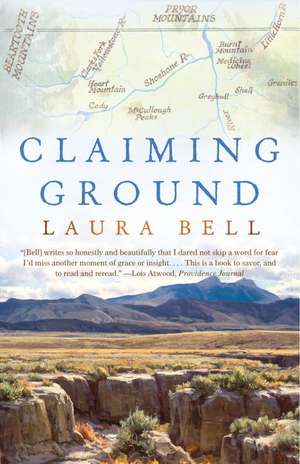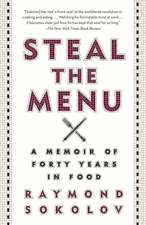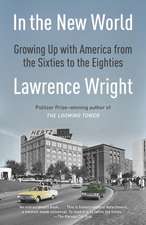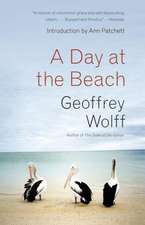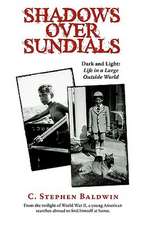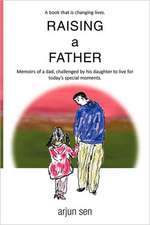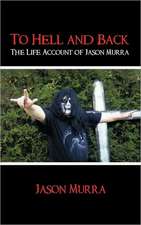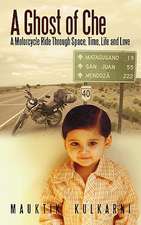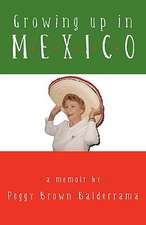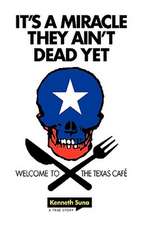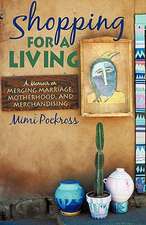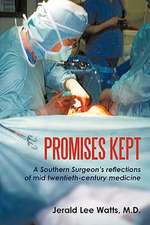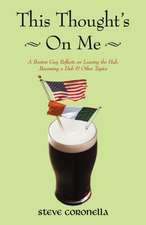Claiming Ground
Autor Laura Bellen Limba Engleză Paperback – 31 mar 2011
In 1977, Laura Bell left her family home in Kentucky for a wild and unexpected adventure: herding sheep in Wyoming’s Big Horn Basin. The only woman in a man’s world, she nevertheless found a home among the strange community of drunks and eccentrics, as well as a shared passion for a life of solitude and hard work. By turns cattle rancher, forest ranger, outfitter, masseuse, wife and mother, Bell vividly recounts her struggle to find solid earth in a memoir that’s as breathtaking as it is singular.
Preț: 108.72 lei
Nou
Puncte Express: 163
Preț estimativ în valută:
20.81€ • 21.49$ • 17.32£
20.81€ • 21.49$ • 17.32£
Carte disponibilă
Livrare economică 04-18 martie
Preluare comenzi: 021 569.72.76
Specificații
ISBN-13: 9780307474643
ISBN-10: 030747464X
Pagini: 241
Dimensiuni: 134 x 202 x 19 mm
Greutate: 0.28 kg
Editura: VINTAGE BOOKS
ISBN-10: 030747464X
Pagini: 241
Dimensiuni: 134 x 202 x 19 mm
Greutate: 0.28 kg
Editura: VINTAGE BOOKS
Notă biografică
Laura Bell’s work has been published in several collections, and from the Wyoming Arts Council she has received two literature fellowships as well as the Neltje Blanchan Memorial Award and the Frank Nelson Doubleday Memorial Award. She lives in Cody, Wyoming, and since 2000 has worked there for the Nature Conservancy.
Extras
MIGRATION
The sheepwagon door stands open to the early dawn. There are times when sleeping inside feels little different than sleeping out like the dogs curled in their scratched beds or the sheep planted against one another across the rise. There’s a blanket, a curve of metal roof, a shelf of books above the bed. From up in the McCullough Peaks a lone coyote yips, sharp and high. There comes an answer, closer, the voices halting at first, then unraveling slowly into a mad chorus of wavering howls. Through the doorway, I see the dogs appear and settle their haunches into the dirt. They watch out over the land, their ears shifting to the cries like antennae. When silence returns, they lower themselves to the ground, still listening.
Under the covers, my hands are still against my bones, the edge of longing too great to name or call up. I wish for a fire to be lit in the iron stove by the door. I wish for the smell of coffee, a cup warm in my hands, a voice to say my name.
A dawn wind rustles loose tin and whispers through stiff sprigs of sage, their seedheads quivering against the wind for as far as I can see into the murky light and beyond, into the empty miles. East, across the Big Horn Basin, the horizon of mountains bears up the salmon wash of morning.
There were nine men herding for the ranch, each with at least a thousand head of sheep in his care. Red, Grady, Murdi, Maurice, Rudy, Ed, Doug, Albert and others that came and went, all crossing the days, one by one, from their calendars. They smelled of sheep tallow, woodsmoke and kerosene, and sometimes of whiskey seeping through their pores. Some of them brought a rare beauty and grace to their work. Others, psychotic or drunk, herded because they couldn’t find a place among people. In the three years I herded, I came to understand they were often one and the same. They wove the line between sacred and profane, never staying much to center. I came to them the observer, the adventurer, thinking myself different and holding myself apart. I came to them a young woman among old men, but what we had in common was that line.
. . .
Across the rangelands of northwest Wyoming, they herded, headed slowly for higher ground, for tender grass and air that held some scrap of moisture. Through brief summer months they hung suspended at the top of the Big Horns. Between timberline and sky, drifts of snow gave way to pools of wild sweet arnica and sheep spread across the earth like clouds run to ground. Beneath early snows of September, the herders retreated, following the sheep down to where the range was more dirt than grass and the slanting sun would give them a brief reprieve on winter. For ten months of every year the sheep and the herders moved across this corner of the map, rising and falling, their tracks a waltz driven by time and weather and the sureness of both.
The men were cared for by John Lewis Hopkin, the grandson of the ranch’s original owner, and Sterling, the man who helped him during the years I herded. They tended the camps and nursed the men’s eccentricities, becoming for them the one line of communication with the outside world. Once a week, they’d drive out to each camp, hauling horse oats, groceries, water, mail, rifle shells, and gossip from town. The herders would try to make this visit last as long as possible. Rudy would offer up Dutch-oven biscuits and a long list of complaints, Maurice, a pot of pinto beans with ham and tortillas rolled by hand on top of the wood stove. Some would string it out with a search for some phantom sick lamb or ewe. Grady would have coffee, sometimes an excellent mutton stew, and, in the months he was sober, good conversation and a quick wit. As for me, I was a listener and a woman among men. This alone was often enough.
Once a week the camps would be tended. After the grind of the pickup engine faded in the distance, there’d be only the sound of sheep, of wind, of our own voices speaking out loud.
The ranch was sprawling, reaching seventy miles across the Big Horn Basin and spilling up into the high sagebrush benches of southern Montana. It was called the Lewis Ranch and had been established by Claude Lewis, the grandson of Mormon pioneers, from the misfortunes of homesteaders during the destitute thirties. At its peak it had run twenty thousand ewes in twenty bands, but over the years half the sheep were replaced with cattle and cowboys who demanded less patience and attention. All the sheep would have been sold but for the tenaciousness of John, the only sheepman in the family once his grandfather was gone.
The skeleton of the ranch was stitched together from smaller farms and ranches along the Shoshone River and the Big Horn, with their headwaters high in the Wind and Absaroka Ranges, and the meager creeks—Crooked, Gypsum, Dry, Whistle and Pryor—that channeled spring melts and infrequent rains. These places held the lambing sheds, the calving corrals, the plowed fields, and they had machinery and telephones, hot showers, and kitchen tables with the imprints of forearms worn into their vinyl coverings. These were tired places with faded paint, and they worked hard for a living, but still they were connected to the tangled life of the small towns of Lovell, Cowley, Deaver and Byron. And to the Mormon Church and to bars, to Saturday night dances, to the string of human interactions on any given day that a person can take for granted.
For just two months a year, the sheepherders would be exposed to the edges of this life, and even that exacted a heavy toll. In early February, the sheep would be trailed in from their winter ranges to the Lovell lambing sheds, where they were sheared in preparation for the lambing season. The herders’ wagons would be lined up side by side along the east edge of the pens, backed up to the fence and facing the cottonwood bottom of the Big Horn River.
With neighbors only feet away and without miles to buffer them from town’s ragged temptations, many of those quiet men unraveled. It might begin with a swig of wine offered by the Mexican shearing crew or a half pint of whiskey pulled from a ranch hand’s pocket. Otherwise quiet men would grow loud and then disappear. Some, the younger of the old men, planned for it with enthusiasm, counting the days until they were free to go, slicking their hair back and believing that love might be found on a barstool. Days or weeks later, a rattling car would drop them off, stumbling, at their wagon, or they’d walk the highway home in the late night. A year’s wages could be lost in that brief, bright sparkling. The Medicine Wheel Bar, the Cactus, the Oasis, the Shoshone, the Waterhole. Drinks were bought for the bar, money given away to strangers, saddles and rifles hocked or sold. When they reached hard bottom, out of money or health or both, they would return as quiet men again, content with the peculiar confines of their lives.
The ranch’s spring ranges pushed west to the McCullough Peaks and the foothills of the volcanic Absaroka Range, north along the Polecat Bench and up into the Pryor Gap country of the Dryhead Ranch, east to the uplifted limestone slabs of the Big Horn Mountains. Straight out of the sheds, the lambs too young to trail, the sheep were loaded into semis and trucked out to the spring ranges. Days before, John and Sterling would haul the herders and wagons out into the hills, miles apart from one another, and leave them to wait alone and afoot for their sheep and horse to arrive. There, the spare rangelands are brightening with new growth: Wyoming big sage, blue gramma, needle and thread, Indian ricegrass, and, scattered among the grasses, delicate evening primrose, copper mallow, and Indian paintbrush in clumps of red, fluorescent pink, and magenta. For some, these are days of sobering up, of nursing the alcoholic shakes with strong coffee, a six-pack of beer, and the company of their dogs. For all, this time seems a true reflection of the distance between them and the world.
. . .
Sheepwagons are set and leveled where the view of the country is long and generous and includes a pond or creek where the sheep can water. Like tiny ships at sea, the wagons are built to provide sturdy shelter from the elements and to hold its contents securely in place across the miles. Their rounded roofs are metal or canvas stretched across wooden bows. Above the wagon tongue is a door, split, and through it to either side a wood cookstove and cabinets. Benches run along the sides with storage beneath, and reaching across the back is a bed with more cabinets beneath and a small window behind. From the framework of the bed, a bit of plywood can be pulled out like a kitchen cutting board to serve as the table.
On this first trip out in the spring, the tender leaves the herder with a well-stocked camp and drives away. A few days, maybe a week later, the rumbling of trucks breaks the silence and along with the rumbling the rising, bleating clamor of ewes and lambs. When the trucks stop and the dust settles,
metal ramps are pulled down and the ewes and lambs spill to the ground and spread and roil through the tender new grass. For the rest of that day, the herder will walk the edges of this chaos with dogs and horse, bumping strays back to center until the reunions between ewes and lambs eventually bring quiet to the waning light.
The sheep give the herders purpose again, placing them back in a world where they belong. But for those few days without sheep, their world is made up of thin air and silence, a blank slate that had sent more than one new man walking back to town.
In the early fall, after the lambs have been shipped to market, the ewes are trailed from the mountain with bitter winds sweeping at their backsides and doubled up into winter bands of two thousand or more, with the bucks thrown in for breeding. There on the low-elevation winter ranges, they paw the snow for shrubby winterfat and eat the tips from sage. The toughest of the herders stay with their sheep through the hard months of November, December, and January, gathering dogs to their beds when the temperatures fall to twenty and forty below, sleeping with eggs and potatoes under the covers to keep them from freezing in the night. At Thanksgiving, John brings a turkey dinner. At Christmas, a ham and a brand-new Pendleton wool shirt, gifts from the ranch.
As a young woman, I found my way into the middle of these lives. I’d come to Wyoming, twenty-two and fresh out of college, to travel with my sister and her five-month-old son while her husband worked on a paleontological dig at Natural Trap Cave on the lower reaches of the northern Big Horn Mountains. We’d camped into Montana’s Pryor Mountains, the Pryor Gap, and on up north to Glacier National Park but were drawn back to the ragtag, anything-goes dig site on Little Mountain, where tents and clothes and Buddhist prayer flags all flapped in the wind. I developed a crush on the head of the dig, Miles, a sinewy paleontologist who quoted poetry and sometimes brushed his teeth with a shot of Jack Daniels in the morning. On the day before I was to head back east with my sister, Miles took us up the mountain toward the Medicine Wheel to picnic with an old sheepherder, Doug, who worked for the Lewis Ranch.
He was camped at the Little Headquarters, a low-slung, one-room log cabin, with an attached shed where he kept a circus of goats, dogs and horses. As a child I’d hidden within the pages of books, crafting my own particular fantasy of a life lived out, with mountains, horses, a cabin, animals that I alone could befriend. I later learned that most of the sheepherders, including Doug, lived this reclusive life to save themselves from the raging alcoholism that pursued them in town, but to me it seemed idyllic. I longed for it, so much so that when I went with Doug to retrieve canned drinks chilling in his spring, the words came blurting out, “Can I stay here? Do you need any help?”
Doug’s cabin was one of eight line camps scattered across the midelevation benches of Little Mountain, remote country where the sheep would be held for several weeks between the drying of the spring ranges in summer’s heat and the opening of the higher altitude Big Horn National Forest grazing allotments. John Blue Canyon road was too rough for anything but a beater sheepwagon, so years ago, the ranch had built tiny shacks and cabins, most barely big enough for bed and stove, on each of the separate ranges. The herders stayed in these while they tended their sheep in the lush feed and tedious close quarters of Little Mountain where the bands mixed easily. But when I arrived, it was summer. All the bands had gone
up to the top of the Big Horns, leaving Doug to tend the bucks below on Little Mountain until they could join the ewes in the fall for breeding. The country was peppered with empty cabins, any one of which could have housed my childhood dreams.
Doug was small and gray, with the twinkly blue eyes of a leprechaun and his jeans held up by rainbow suspenders. “Well, now, I can hardly keep myself busy,” he said in answer to my question. “But, you know, I bet you could set up camp in the Cow Creek cabin. There’s lots to see up here. I could give you a horse. Strawberry’d be plumb fine for you. I’ve got about two of everything, salt and pepper, groceries aplenty. And a rifle. You’d need a rifle. Ever shot one?” By the time we’d returned with the sodas, our plans were made. When my sister and her husband left the next day, I wouldn’t be going with them.
For the rest of that summer, I lived in the Cow Creek cabin, ten-by-twelve feet with a bed, table, wood cookstove and creek water to drink. Most afternoons, Doug would check in on me. He’d draw crude maps on scrap paper, showing trails, a homestead cabin, an old still site. Next morning, I’d saddle up Strawberry, a sixteen-hand red roan gelding, filling the saddlebags with lunch and a book, one map or another folded in my pocket. I hunted arrowheads out on the Honeymoon cabin point, scouted out the Bischoff cow camp on the edge of Cottonwood Canyon and explored dark, secret trails that lead down into the depths of Devil’s Canyon.
On weekends, Miles would bounce up the seventeen miles of deeply rutted roads in his old Land Rover with wine, books, stories, an iced-down Sara Lee cheesecake. On one occasion, he arrived with Sonia, the new Big Horn County librarian, and her two children, recently migrated out from Lexington, Kentucky. She’d unfolded from the Land Rover, a lanky, dark-headed Dane with uncontrollably curly hair and crinkly eyes. “I’ve
found you a fellow Kentuckian,” Miles said, and our friendship was immediate, enduring long after my brassy romance with the paleontologist was over.
At summer’s end, Doug rolled a Bull Durham cigarette in the crease of his jeans and encouraged me to return. “I’m sure we could get you a job lambing in the winter,” he’d said. “You’ve only seen a tiny piece of this whole outfit. It’s big. I can talk to John and get you a job.”
I laughed at the prospect, sure of a more traditional future and certain it wouldn’t be in the lambing sheds of Wyoming. But fall was hard. I was at a loss as to how to live my life and where to dig in. I saw people with companions, homes, meaningful work, but I had no idea how to become them, how to spin that web of comfort and belonging around me. I felt alone, unmoored and unworthy.
I’d been drawn to the racetrack, to the fog-wisped early mornings of Kentucky, the thin-skinned electricity of the thoroughbreds, the weathered coarseness and nomadic air of the track crew. I hot-walked and galloped horses in the mornings and loaded UPS trucks from a warehouse in the afternoons, living once again in my parents’ house. One day, as I stepped from the shower, my mother saw the bruises that covered my body from handling truckloads of packages, and, trembling with frustration, she said, “You don’t have to do this. You’re smart and pretty and have an education. If you aren’t doing exactly what you want to be doing when you turn fifty, it’s your own damned fault.”
I can see her standing there in the dimly lit hallway by the bathroom, next to the antique oak washstand my father had refinished. She was in her midfifties then, the mother of five mostly grown children and the wife of a minister turned president of a theological seminary. She hadn’t yet gone back for her master’s degree, which she got at the age of sixty and began her internationally significant career in the work of Alzheimer’s care. She was a woman between lives and angry with her daughter for squandering the freedom and opportunity she must have envied.
I stood before her, bruised and lost, a young woman meant to be a success in something but not. Unable to distinguish words of love from banishment or childhood dreams from a place to hide, I packed my things and headed back west. I’d gone because I was drawn to this nomadic life of horses
and sheep and dogs.
I’d gone because I was young and lost and had no idea where else to go. I arrived in the snows of February, twenty degrees below zero, and made my home in a sheepwagon parked under the bare-branched cottonwoods of the Whistle Creek Ranch.
For fifteen dollars a day plus groceries, I pulled on coveralls slick with lanolin and paint smears and worked twelve-hour shifts in the long, low-slung Whistle Creek lambing sheds, where five thousand ewes gave birth in six weeks’ time. At six in the morning, when the night-drop man went off shift and the day crew came on, the tiny wooden jugs that lined the perimeter of the shed would be filled with ewes and lambs brought in during the night. The jugs were small pens, roughly three feet by four, just big enough for a ewe and one or two lambs. In the midst of crowded corrals, ewes would sometimes birth their lambs at a high trot and never look back. Or, they could get distracted before they bonded, learned the smell of each other, and the lamb had a chance to nurse. Those tiny wooden jugs promoted love between mother and child, a forced closeness until the real thing took over.
It was my job every morning to brand the new pairings with numbered paint brands, one to a thousand in rounds of green, blue, black, red, orange. I’d check to see if each lamb had sucked. If not, the tiny space of the jug made it easy to drop into a squat and wedge the ewe against the boards with a
shoulder while guiding the lamb’s mouth to the teat and shooting a taste of milk through its lips. The ewes gave off the acrid smell of dank wool. The lambs had loose wrinkly skin and long tails. From down within the jug, the world would go silent as the lamb began to suck and the ewe would remember something old and innate and give up her mad bleating in my ear.
When the lambs had suckled, the pairs—which sometimes included twin lambs—would be turned out into slightly larger pens holding four pairs, then eight. When the relationships passed muster, they’d get sorted outside the lambing shed into pens of twenty, then a hundred, moving in orderly fashion
toward the bands of roughly a thousand pairs that would summer together on the high reaches of the Big Horns.
In my first season, my sheepwagon was parked under the cottonwoods behind the Whistle Creek tenant house, along with five others parked in a row for hired hands and herders. The wagons were set so their Dutch doors opened to the east, to the morning sun and acres of hayfields that stretched out toward the sagebrush hills. At the far end of the wagons was an outhouse, ancient and foul.
As the spring nights warmed, I slept with the Dutch doors open to the night and to the sounds of coyotes and owls. One night I woke to find the wagon lurching with the stumbling weight of someone coming through the door and across the tiny floor. It was Antone, the Basque night-drop man, and then
he was at my bed, his tongue in my face, his weight on top of me with his stale sheep smell, his words slurred and stinking of alcohol. From within the protection of my sleeping bag, I yelled and knuckled his head and bit at his lips until he spit on me and finally left, cursing and muttering that he hadn’t meant any harm.
It was my first experience with what alcohol could do to a person. Among the herders, I would see it again and again. Someone fastidiously proud of his cooking or leatherwork one day could be barking like a dog or peeing in his pants the next.
I learned to be disappointed,my head down and my coveralls zipped around me. I began fastening the hook on my door and thinking of the hills and longing for the quiet, empty space of them.
From the Hardcover edition.
The sheepwagon door stands open to the early dawn. There are times when sleeping inside feels little different than sleeping out like the dogs curled in their scratched beds or the sheep planted against one another across the rise. There’s a blanket, a curve of metal roof, a shelf of books above the bed. From up in the McCullough Peaks a lone coyote yips, sharp and high. There comes an answer, closer, the voices halting at first, then unraveling slowly into a mad chorus of wavering howls. Through the doorway, I see the dogs appear and settle their haunches into the dirt. They watch out over the land, their ears shifting to the cries like antennae. When silence returns, they lower themselves to the ground, still listening.
Under the covers, my hands are still against my bones, the edge of longing too great to name or call up. I wish for a fire to be lit in the iron stove by the door. I wish for the smell of coffee, a cup warm in my hands, a voice to say my name.
A dawn wind rustles loose tin and whispers through stiff sprigs of sage, their seedheads quivering against the wind for as far as I can see into the murky light and beyond, into the empty miles. East, across the Big Horn Basin, the horizon of mountains bears up the salmon wash of morning.
There were nine men herding for the ranch, each with at least a thousand head of sheep in his care. Red, Grady, Murdi, Maurice, Rudy, Ed, Doug, Albert and others that came and went, all crossing the days, one by one, from their calendars. They smelled of sheep tallow, woodsmoke and kerosene, and sometimes of whiskey seeping through their pores. Some of them brought a rare beauty and grace to their work. Others, psychotic or drunk, herded because they couldn’t find a place among people. In the three years I herded, I came to understand they were often one and the same. They wove the line between sacred and profane, never staying much to center. I came to them the observer, the adventurer, thinking myself different and holding myself apart. I came to them a young woman among old men, but what we had in common was that line.
. . .
Across the rangelands of northwest Wyoming, they herded, headed slowly for higher ground, for tender grass and air that held some scrap of moisture. Through brief summer months they hung suspended at the top of the Big Horns. Between timberline and sky, drifts of snow gave way to pools of wild sweet arnica and sheep spread across the earth like clouds run to ground. Beneath early snows of September, the herders retreated, following the sheep down to where the range was more dirt than grass and the slanting sun would give them a brief reprieve on winter. For ten months of every year the sheep and the herders moved across this corner of the map, rising and falling, their tracks a waltz driven by time and weather and the sureness of both.
The men were cared for by John Lewis Hopkin, the grandson of the ranch’s original owner, and Sterling, the man who helped him during the years I herded. They tended the camps and nursed the men’s eccentricities, becoming for them the one line of communication with the outside world. Once a week, they’d drive out to each camp, hauling horse oats, groceries, water, mail, rifle shells, and gossip from town. The herders would try to make this visit last as long as possible. Rudy would offer up Dutch-oven biscuits and a long list of complaints, Maurice, a pot of pinto beans with ham and tortillas rolled by hand on top of the wood stove. Some would string it out with a search for some phantom sick lamb or ewe. Grady would have coffee, sometimes an excellent mutton stew, and, in the months he was sober, good conversation and a quick wit. As for me, I was a listener and a woman among men. This alone was often enough.
Once a week the camps would be tended. After the grind of the pickup engine faded in the distance, there’d be only the sound of sheep, of wind, of our own voices speaking out loud.
The ranch was sprawling, reaching seventy miles across the Big Horn Basin and spilling up into the high sagebrush benches of southern Montana. It was called the Lewis Ranch and had been established by Claude Lewis, the grandson of Mormon pioneers, from the misfortunes of homesteaders during the destitute thirties. At its peak it had run twenty thousand ewes in twenty bands, but over the years half the sheep were replaced with cattle and cowboys who demanded less patience and attention. All the sheep would have been sold but for the tenaciousness of John, the only sheepman in the family once his grandfather was gone.
The skeleton of the ranch was stitched together from smaller farms and ranches along the Shoshone River and the Big Horn, with their headwaters high in the Wind and Absaroka Ranges, and the meager creeks—Crooked, Gypsum, Dry, Whistle and Pryor—that channeled spring melts and infrequent rains. These places held the lambing sheds, the calving corrals, the plowed fields, and they had machinery and telephones, hot showers, and kitchen tables with the imprints of forearms worn into their vinyl coverings. These were tired places with faded paint, and they worked hard for a living, but still they were connected to the tangled life of the small towns of Lovell, Cowley, Deaver and Byron. And to the Mormon Church and to bars, to Saturday night dances, to the string of human interactions on any given day that a person can take for granted.
For just two months a year, the sheepherders would be exposed to the edges of this life, and even that exacted a heavy toll. In early February, the sheep would be trailed in from their winter ranges to the Lovell lambing sheds, where they were sheared in preparation for the lambing season. The herders’ wagons would be lined up side by side along the east edge of the pens, backed up to the fence and facing the cottonwood bottom of the Big Horn River.
With neighbors only feet away and without miles to buffer them from town’s ragged temptations, many of those quiet men unraveled. It might begin with a swig of wine offered by the Mexican shearing crew or a half pint of whiskey pulled from a ranch hand’s pocket. Otherwise quiet men would grow loud and then disappear. Some, the younger of the old men, planned for it with enthusiasm, counting the days until they were free to go, slicking their hair back and believing that love might be found on a barstool. Days or weeks later, a rattling car would drop them off, stumbling, at their wagon, or they’d walk the highway home in the late night. A year’s wages could be lost in that brief, bright sparkling. The Medicine Wheel Bar, the Cactus, the Oasis, the Shoshone, the Waterhole. Drinks were bought for the bar, money given away to strangers, saddles and rifles hocked or sold. When they reached hard bottom, out of money or health or both, they would return as quiet men again, content with the peculiar confines of their lives.
The ranch’s spring ranges pushed west to the McCullough Peaks and the foothills of the volcanic Absaroka Range, north along the Polecat Bench and up into the Pryor Gap country of the Dryhead Ranch, east to the uplifted limestone slabs of the Big Horn Mountains. Straight out of the sheds, the lambs too young to trail, the sheep were loaded into semis and trucked out to the spring ranges. Days before, John and Sterling would haul the herders and wagons out into the hills, miles apart from one another, and leave them to wait alone and afoot for their sheep and horse to arrive. There, the spare rangelands are brightening with new growth: Wyoming big sage, blue gramma, needle and thread, Indian ricegrass, and, scattered among the grasses, delicate evening primrose, copper mallow, and Indian paintbrush in clumps of red, fluorescent pink, and magenta. For some, these are days of sobering up, of nursing the alcoholic shakes with strong coffee, a six-pack of beer, and the company of their dogs. For all, this time seems a true reflection of the distance between them and the world.
. . .
Sheepwagons are set and leveled where the view of the country is long and generous and includes a pond or creek where the sheep can water. Like tiny ships at sea, the wagons are built to provide sturdy shelter from the elements and to hold its contents securely in place across the miles. Their rounded roofs are metal or canvas stretched across wooden bows. Above the wagon tongue is a door, split, and through it to either side a wood cookstove and cabinets. Benches run along the sides with storage beneath, and reaching across the back is a bed with more cabinets beneath and a small window behind. From the framework of the bed, a bit of plywood can be pulled out like a kitchen cutting board to serve as the table.
On this first trip out in the spring, the tender leaves the herder with a well-stocked camp and drives away. A few days, maybe a week later, the rumbling of trucks breaks the silence and along with the rumbling the rising, bleating clamor of ewes and lambs. When the trucks stop and the dust settles,
metal ramps are pulled down and the ewes and lambs spill to the ground and spread and roil through the tender new grass. For the rest of that day, the herder will walk the edges of this chaos with dogs and horse, bumping strays back to center until the reunions between ewes and lambs eventually bring quiet to the waning light.
The sheep give the herders purpose again, placing them back in a world where they belong. But for those few days without sheep, their world is made up of thin air and silence, a blank slate that had sent more than one new man walking back to town.
In the early fall, after the lambs have been shipped to market, the ewes are trailed from the mountain with bitter winds sweeping at their backsides and doubled up into winter bands of two thousand or more, with the bucks thrown in for breeding. There on the low-elevation winter ranges, they paw the snow for shrubby winterfat and eat the tips from sage. The toughest of the herders stay with their sheep through the hard months of November, December, and January, gathering dogs to their beds when the temperatures fall to twenty and forty below, sleeping with eggs and potatoes under the covers to keep them from freezing in the night. At Thanksgiving, John brings a turkey dinner. At Christmas, a ham and a brand-new Pendleton wool shirt, gifts from the ranch.
As a young woman, I found my way into the middle of these lives. I’d come to Wyoming, twenty-two and fresh out of college, to travel with my sister and her five-month-old son while her husband worked on a paleontological dig at Natural Trap Cave on the lower reaches of the northern Big Horn Mountains. We’d camped into Montana’s Pryor Mountains, the Pryor Gap, and on up north to Glacier National Park but were drawn back to the ragtag, anything-goes dig site on Little Mountain, where tents and clothes and Buddhist prayer flags all flapped in the wind. I developed a crush on the head of the dig, Miles, a sinewy paleontologist who quoted poetry and sometimes brushed his teeth with a shot of Jack Daniels in the morning. On the day before I was to head back east with my sister, Miles took us up the mountain toward the Medicine Wheel to picnic with an old sheepherder, Doug, who worked for the Lewis Ranch.
He was camped at the Little Headquarters, a low-slung, one-room log cabin, with an attached shed where he kept a circus of goats, dogs and horses. As a child I’d hidden within the pages of books, crafting my own particular fantasy of a life lived out, with mountains, horses, a cabin, animals that I alone could befriend. I later learned that most of the sheepherders, including Doug, lived this reclusive life to save themselves from the raging alcoholism that pursued them in town, but to me it seemed idyllic. I longed for it, so much so that when I went with Doug to retrieve canned drinks chilling in his spring, the words came blurting out, “Can I stay here? Do you need any help?”
Doug’s cabin was one of eight line camps scattered across the midelevation benches of Little Mountain, remote country where the sheep would be held for several weeks between the drying of the spring ranges in summer’s heat and the opening of the higher altitude Big Horn National Forest grazing allotments. John Blue Canyon road was too rough for anything but a beater sheepwagon, so years ago, the ranch had built tiny shacks and cabins, most barely big enough for bed and stove, on each of the separate ranges. The herders stayed in these while they tended their sheep in the lush feed and tedious close quarters of Little Mountain where the bands mixed easily. But when I arrived, it was summer. All the bands had gone
up to the top of the Big Horns, leaving Doug to tend the bucks below on Little Mountain until they could join the ewes in the fall for breeding. The country was peppered with empty cabins, any one of which could have housed my childhood dreams.
Doug was small and gray, with the twinkly blue eyes of a leprechaun and his jeans held up by rainbow suspenders. “Well, now, I can hardly keep myself busy,” he said in answer to my question. “But, you know, I bet you could set up camp in the Cow Creek cabin. There’s lots to see up here. I could give you a horse. Strawberry’d be plumb fine for you. I’ve got about two of everything, salt and pepper, groceries aplenty. And a rifle. You’d need a rifle. Ever shot one?” By the time we’d returned with the sodas, our plans were made. When my sister and her husband left the next day, I wouldn’t be going with them.
For the rest of that summer, I lived in the Cow Creek cabin, ten-by-twelve feet with a bed, table, wood cookstove and creek water to drink. Most afternoons, Doug would check in on me. He’d draw crude maps on scrap paper, showing trails, a homestead cabin, an old still site. Next morning, I’d saddle up Strawberry, a sixteen-hand red roan gelding, filling the saddlebags with lunch and a book, one map or another folded in my pocket. I hunted arrowheads out on the Honeymoon cabin point, scouted out the Bischoff cow camp on the edge of Cottonwood Canyon and explored dark, secret trails that lead down into the depths of Devil’s Canyon.
On weekends, Miles would bounce up the seventeen miles of deeply rutted roads in his old Land Rover with wine, books, stories, an iced-down Sara Lee cheesecake. On one occasion, he arrived with Sonia, the new Big Horn County librarian, and her two children, recently migrated out from Lexington, Kentucky. She’d unfolded from the Land Rover, a lanky, dark-headed Dane with uncontrollably curly hair and crinkly eyes. “I’ve
found you a fellow Kentuckian,” Miles said, and our friendship was immediate, enduring long after my brassy romance with the paleontologist was over.
At summer’s end, Doug rolled a Bull Durham cigarette in the crease of his jeans and encouraged me to return. “I’m sure we could get you a job lambing in the winter,” he’d said. “You’ve only seen a tiny piece of this whole outfit. It’s big. I can talk to John and get you a job.”
I laughed at the prospect, sure of a more traditional future and certain it wouldn’t be in the lambing sheds of Wyoming. But fall was hard. I was at a loss as to how to live my life and where to dig in. I saw people with companions, homes, meaningful work, but I had no idea how to become them, how to spin that web of comfort and belonging around me. I felt alone, unmoored and unworthy.
I’d been drawn to the racetrack, to the fog-wisped early mornings of Kentucky, the thin-skinned electricity of the thoroughbreds, the weathered coarseness and nomadic air of the track crew. I hot-walked and galloped horses in the mornings and loaded UPS trucks from a warehouse in the afternoons, living once again in my parents’ house. One day, as I stepped from the shower, my mother saw the bruises that covered my body from handling truckloads of packages, and, trembling with frustration, she said, “You don’t have to do this. You’re smart and pretty and have an education. If you aren’t doing exactly what you want to be doing when you turn fifty, it’s your own damned fault.”
I can see her standing there in the dimly lit hallway by the bathroom, next to the antique oak washstand my father had refinished. She was in her midfifties then, the mother of five mostly grown children and the wife of a minister turned president of a theological seminary. She hadn’t yet gone back for her master’s degree, which she got at the age of sixty and began her internationally significant career in the work of Alzheimer’s care. She was a woman between lives and angry with her daughter for squandering the freedom and opportunity she must have envied.
I stood before her, bruised and lost, a young woman meant to be a success in something but not. Unable to distinguish words of love from banishment or childhood dreams from a place to hide, I packed my things and headed back west. I’d gone because I was drawn to this nomadic life of horses
and sheep and dogs.
I’d gone because I was young and lost and had no idea where else to go. I arrived in the snows of February, twenty degrees below zero, and made my home in a sheepwagon parked under the bare-branched cottonwoods of the Whistle Creek Ranch.
For fifteen dollars a day plus groceries, I pulled on coveralls slick with lanolin and paint smears and worked twelve-hour shifts in the long, low-slung Whistle Creek lambing sheds, where five thousand ewes gave birth in six weeks’ time. At six in the morning, when the night-drop man went off shift and the day crew came on, the tiny wooden jugs that lined the perimeter of the shed would be filled with ewes and lambs brought in during the night. The jugs were small pens, roughly three feet by four, just big enough for a ewe and one or two lambs. In the midst of crowded corrals, ewes would sometimes birth their lambs at a high trot and never look back. Or, they could get distracted before they bonded, learned the smell of each other, and the lamb had a chance to nurse. Those tiny wooden jugs promoted love between mother and child, a forced closeness until the real thing took over.
It was my job every morning to brand the new pairings with numbered paint brands, one to a thousand in rounds of green, blue, black, red, orange. I’d check to see if each lamb had sucked. If not, the tiny space of the jug made it easy to drop into a squat and wedge the ewe against the boards with a
shoulder while guiding the lamb’s mouth to the teat and shooting a taste of milk through its lips. The ewes gave off the acrid smell of dank wool. The lambs had loose wrinkly skin and long tails. From down within the jug, the world would go silent as the lamb began to suck and the ewe would remember something old and innate and give up her mad bleating in my ear.
When the lambs had suckled, the pairs—which sometimes included twin lambs—would be turned out into slightly larger pens holding four pairs, then eight. When the relationships passed muster, they’d get sorted outside the lambing shed into pens of twenty, then a hundred, moving in orderly fashion
toward the bands of roughly a thousand pairs that would summer together on the high reaches of the Big Horns.
In my first season, my sheepwagon was parked under the cottonwoods behind the Whistle Creek tenant house, along with five others parked in a row for hired hands and herders. The wagons were set so their Dutch doors opened to the east, to the morning sun and acres of hayfields that stretched out toward the sagebrush hills. At the far end of the wagons was an outhouse, ancient and foul.
As the spring nights warmed, I slept with the Dutch doors open to the night and to the sounds of coyotes and owls. One night I woke to find the wagon lurching with the stumbling weight of someone coming through the door and across the tiny floor. It was Antone, the Basque night-drop man, and then
he was at my bed, his tongue in my face, his weight on top of me with his stale sheep smell, his words slurred and stinking of alcohol. From within the protection of my sleeping bag, I yelled and knuckled his head and bit at his lips until he spit on me and finally left, cursing and muttering that he hadn’t meant any harm.
It was my first experience with what alcohol could do to a person. Among the herders, I would see it again and again. Someone fastidiously proud of his cooking or leatherwork one day could be barking like a dog or peeing in his pants the next.
I learned to be disappointed,my head down and my coveralls zipped around me. I began fastening the hook on my door and thinking of the hills and longing for the quiet, empty space of them.
From the Hardcover edition.
Recenzii
“[Bell] writes so honestly and beautifully that I dared not skip a word for fear I’d miss another moment of grace or insight. . . . This is a book to savor, and to read and reread.” —Lois Atwood, Providence Journal
“A fresh, wonderful piece of writing, about the isolated and attentive kind of life almost nobody lives nowadays, or ever did.” —Kent Haruf, author of Plainsong
“Remarkable. . . . Exquisite. . . . Bell may have grown up in the South, but she writes like a Wyoming native. . . . Tender and touching.” —New West
“The finest memoir I’ve read.” —Mark Spragg, author of An Unfinished Life
“Beautiful, moving, and graceful.” —The Boston Globe
“The American West has asserted itself as a powerful muse for . . . a group of remarkable women writers that includes Annie Proulx [and] Terry Tempest Williams. . . . Claiming Ground, Bell’s debut, marks her elevation into that group. Bell’s metamorphosis slowly unfolds in prose that is both rustically piquant and lyrical.” —The Christian Science Monitor
“Luminous. . . . Can be savored for the lyricism of its language, its insight into a distinct American region and a meditation on physical work and the role it played in one woman’s life.” —Minneapolis Star-Tribune
“Part lyrical remembrance of a deeply intense relationship with nature in a sweepingly majestic landscape, part unswerving self-analysis, Claiming Ground delivers both beauty and unabashed reflection.” —BookPage
“Bell loves the solitude for its grandeur and for connecting her to the wildlife, all of which she renders in a luminous and flinty prose attuned to the country.”—The Free Lance-Star (Fredericksburg, VA)
“Unique and engaging. . . . Well worth reading.” —San Francisco Chronicle
“If you couldn’t put down Elizabeth Gilbert’s Eat, Pray, Love, you must go out right this minute and buy Laura Bell’s Claiming Ground. . . . Worth is rarely the measure of a book’s success, but if ever a memoir deserved to be a bestseller, Claiming Ground surely does. . . . Brave and honest. . . . Endlessly inventive.” —Nashville Scene Weekly
“Quietly powerful. . . . Bell’s writing elegantly balances pain and love, solitude and family ties, finding solace both in human relationships and in relationships to animals and the Western landscape. Big and open-hearted like the Wyoming sky, this memoir is a pleasure to read.” —Sacramento Book Review
“Brings a unique point of view—and tremendous writing talent—to [the America West]. . . . A portrait of the inextricable link between a person and a place.” —Salt Lake City Weekly
“Bell tenderly writes about the people in her life with grace and reverence, never sacrificing honesty.” —The Billings Gazette
“Has brought more than one reader to tears. . . . Vivid.” —The Cody Enterprise
“A heart-wrenching ode to the rough, enormous beauty of the Western landscape.” —The Nature Conservancy
“Bell’s gift for observation, generous analysis, and her ability to turn a place and people into words are uncommon—traits she shares with the likes of Normal McLean and Wallace Stegner, but few others. . . . [A] fine book.” —Metro Pulse (Knoxville, TN)
“Open, honest, strong and unflinching.” —The Durango Herald
“A wonderfully written, refreshing story.” —William Kittredge
“Intriguing and eloquent, by turns guarded then vulnerable, and always written with honesty and keen observation, Laura Bell's Claiming Ground merges exquisitely the human condition of wonder, celebration, fear and longing with the western landscape that so arouses and nurtures these same senses.” —Rick Bass
“Deeply felt. . . . Each twist of the story [is] viscerally evoked by Bell’s wrenching, raw, and honest prose.” —Orion magazine
“[Bell] describes a world that most would have trouble imagining—what the inside of a sheepwagon looks like, how to spot a cow in labor, what little luxuries fit best inside saddlebags. . . . Bell watches the land with an attentiveness gained from years of scanning the horizon for wayward sheep, and she captures its sights and sounds with startling beauty.” —High Country News
“A fresh, wonderful piece of writing, about the isolated and attentive kind of life almost nobody lives nowadays, or ever did.” —Kent Haruf, author of Plainsong
“Remarkable. . . . Exquisite. . . . Bell may have grown up in the South, but she writes like a Wyoming native. . . . Tender and touching.” —New West
“The finest memoir I’ve read.” —Mark Spragg, author of An Unfinished Life
“Beautiful, moving, and graceful.” —The Boston Globe
“The American West has asserted itself as a powerful muse for . . . a group of remarkable women writers that includes Annie Proulx [and] Terry Tempest Williams. . . . Claiming Ground, Bell’s debut, marks her elevation into that group. Bell’s metamorphosis slowly unfolds in prose that is both rustically piquant and lyrical.” —The Christian Science Monitor
“Luminous. . . . Can be savored for the lyricism of its language, its insight into a distinct American region and a meditation on physical work and the role it played in one woman’s life.” —Minneapolis Star-Tribune
“Part lyrical remembrance of a deeply intense relationship with nature in a sweepingly majestic landscape, part unswerving self-analysis, Claiming Ground delivers both beauty and unabashed reflection.” —BookPage
“Bell loves the solitude for its grandeur and for connecting her to the wildlife, all of which she renders in a luminous and flinty prose attuned to the country.”—The Free Lance-Star (Fredericksburg, VA)
“Unique and engaging. . . . Well worth reading.” —San Francisco Chronicle
“If you couldn’t put down Elizabeth Gilbert’s Eat, Pray, Love, you must go out right this minute and buy Laura Bell’s Claiming Ground. . . . Worth is rarely the measure of a book’s success, but if ever a memoir deserved to be a bestseller, Claiming Ground surely does. . . . Brave and honest. . . . Endlessly inventive.” —Nashville Scene Weekly
“Quietly powerful. . . . Bell’s writing elegantly balances pain and love, solitude and family ties, finding solace both in human relationships and in relationships to animals and the Western landscape. Big and open-hearted like the Wyoming sky, this memoir is a pleasure to read.” —Sacramento Book Review
“Brings a unique point of view—and tremendous writing talent—to [the America West]. . . . A portrait of the inextricable link between a person and a place.” —Salt Lake City Weekly
“Bell tenderly writes about the people in her life with grace and reverence, never sacrificing honesty.” —The Billings Gazette
“Has brought more than one reader to tears. . . . Vivid.” —The Cody Enterprise
“A heart-wrenching ode to the rough, enormous beauty of the Western landscape.” —The Nature Conservancy
“Bell’s gift for observation, generous analysis, and her ability to turn a place and people into words are uncommon—traits she shares with the likes of Normal McLean and Wallace Stegner, but few others. . . . [A] fine book.” —Metro Pulse (Knoxville, TN)
“Open, honest, strong and unflinching.” —The Durango Herald
“A wonderfully written, refreshing story.” —William Kittredge
“Intriguing and eloquent, by turns guarded then vulnerable, and always written with honesty and keen observation, Laura Bell's Claiming Ground merges exquisitely the human condition of wonder, celebration, fear and longing with the western landscape that so arouses and nurtures these same senses.” —Rick Bass
“Deeply felt. . . . Each twist of the story [is] viscerally evoked by Bell’s wrenching, raw, and honest prose.” —Orion magazine
“[Bell] describes a world that most would have trouble imagining—what the inside of a sheepwagon looks like, how to spot a cow in labor, what little luxuries fit best inside saddlebags. . . . Bell watches the land with an attentiveness gained from years of scanning the horizon for wayward sheep, and she captures its sights and sounds with startling beauty.” —High Country News
